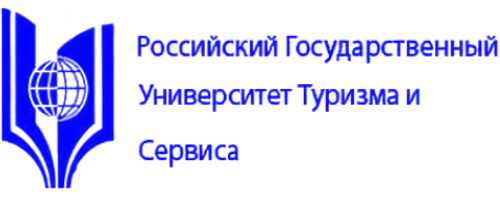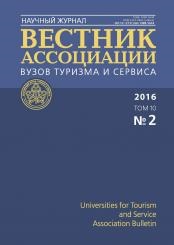Moskva, Moscow, Russian Federation
In this article the author gives grounds to the necessity to refuse from the traditional understanding of a subject teacher having extensive and fundamental knowledge in his field and justifies the necessity to foster an aware teacher able to self-building and self-developing, to seek new meanings of his profession and able to build his model of activity and communication. In this turn the author gives a new definition of pedagogical communication as the process of professional and personal development through the mechanisms of creative interaction. In this article the author defines the es- sence and specific features of the process of the formation of pedagogical communication of a future teacher as a pedagogical, task-oriented, invariant, integrated, inside and outside determined, independent with its temporal and spatial dimensions. The author elaborates the pedagogical concept of the process including a range of criteria, factors, conditions, backgrounds and descriptors of the process under study. On the basis of the analyzed literature the author deduces logical relations and principles, draws certain conclusions and presents working knowledge of the research. The analysis of the methodological literature lets the author reveal the meaning of such terms as creative interaction, freedom of choice, proactive stance, dialogue-oriented communication, reflection, openness, which promote sponsorship for building the model of pedagogical communication of your own, for displaying internal mechanisms of self-development, building the program of development of your own. There search is done at the faculty of foreign languages of Kamchatka state pedagogical institute. The target audience is PhD candidates, researchers, lecturers at higher institutions, secondary school teachers and students of linguistic and non-linguistic faculties.
pedagogical communication, creative interaction, reflection, spiritual commonality, semantic context, self-development, self-improvement
1. Abramova O.A., Specific professional communication in the structure of professional educator. Sovremennye issledovaniya sotsial’nykh problem, 2012, no. 1 (09). (In Russ) Available at: http://cyberleninka.ru/article/n/spetsifika-professionalno- go-obscheniya-v-strukture-professionalnoy-deyatelnosti-pedagoga.
2. Alekseev N.A., Psychological knowledge in the pedagogical research. Obrazovanie i nauka, 2007, no. 2 (44), pp. 56-66. (In Russ).
3. Byrdina O.G., Positional approach to understanding professional-valuable self-attitude of future teachers. Molodoi uchenyi, 2013, no.11 (58), pp. 575-577. (In Russ).
4. Valeev A.A., Kondrat’eva I.G., Factors of successful training in foreign-language professional communication. Sovremennye problemy nauki i obrazovaniya, 2014, no 6. (In Russ) Available at: http://www.science-education.ru/ru/article/ view?id=16318.
5. Vershinina N.A., Puskunova E.V., Young teacher’s professional development by means of competitive movement. Chelovek i obrazovanie, 2012, no. 2 (31), pp. 46-50. (In Russ).
6. Gavrilova Z.A., Phenomenological analysis of the concept of «creative interaction». Sibirskii pedagogicheskii zhurnal, 2009, no. 9, pp. 176-181. (In Russ).
7. Dvorkina E.A., Polyakova Yu.D., The project «Moscow Streets» as a way of creating a humanitarian environment in teach- ing foreign students. The formation of the humanitarian environment in a technical higher school: experience of design and implementation: Proceedings of Russian scientific-methodical conference. (Moscow, November, 15 2013). Moscow: Izd. tsentr RGU nefti i gaza imeni I.M. Gubkina, 2013, pp. 56-60. (In Russ).
8. Zubareva K.A., Openness as a phenomenon of modern education. Pedagogicheskoe obrazovanie v Rossii, 2012, no. 3, pp. 6-10. (In Russ).
9. Kocheva O.L., Improving of academic motivation by means of setting unsupervised tasks in foreign languages. Diskussiya, 2015, no. 1(53), pp. 116-121. (In Russ).
10. Krasnova V.G., Golub’ O.V., Aspects of the humanistic orientation of education. (In Russ) Available at: http://libvuz.net/ book/310-aspekty-gumanisticheskoj-napravlennosti-obrazovaniya-nauchnaya-statya-vg-krasnova-ov-golub/2-voprosy- pedagogiki-psixologii-lichnosti-nekotorye-aspekty-gumanisticheskoj-napravlennosti-obrazovaniya.html.
11. Krizhanskaya Yu.S., Tret’yakov V.P., Psychology of communication and interpersonal relations - the third form of human- istic communication. (In Russ) Available at: http://www.univer5.ru/psihologiya/psihologiya-obscheniya-i-mezhlichnost- nyih-otnosheniy/Page-13.html.
12. Muradova N.T., Erdanova S.A., Training professionally-oriented communication in a foreign language of students of non- linguistic universities. Molodoi uchenyi, 2013, no. 11 (58), pp. 822-824. (In Russ).
13. Murtazina M. Sh., Forms of Cultures Dialogue in Virtual Environment. Vestnik Chitinskogo gosudarstvennogo universiteta, 2011, no. 4 (71), pp. 42-47. (In Russ).
14. Mironov V.V., The transformation of culture in the space of global communication. Mediaskop, 2009, no. 2. (In Russ) Available at: //http: www.oldmediascope.ru/node/356.
15. Ovsyannikova S.B., Professional self-identification as realization means of personality active position. Vestnik TGPU, 2011, no. 4 (106), pp. 139-144. (In Russ).
16. Rasskazova Zh.V., Rrole of interactive learning in the process of formation of research competence of schoolchildren. Theory and practice of education in modern world: proceedings of III international scientific conference (St. Petersburg, May 2013). St. Petersburg: Renome, 2013, pp. 19-21. (In Russ).
17. Spivakova V.V., Pedagogical communication in the system «Teacher-student». Izvestiya Rossiiskogo gosudarstvennogo peda- gogicheskogo universiteta im. A.I. Gertsena, 2008, no. 2(76), pp. 247-250. (In Russ).
18. Sukhovershina Yu.V., Tikhomirova E.P., Training of business (professional) communication. Moscow: Akademicheskii proekt, 2009, 127 p. (In Russ).
19. Stupina S.B., Interactive learning technology in higher education: a teaching manual. Saratov: Izd. tsentr «Nauka», 2009, 52 p. (In Russ).
20. Tokpaeva M.A., Pedagogical communication is an important condition for the effectiveness of the educational process. Theory and practice of education in modern world: proceedings of III international scientific conference (St. Petersburg, May 2013).St. Petersburg: Renome, 2013, p. 110-112. (In Russ).
21. Kharchenko E.V., Taranukha L.V., Professional communication and speech impact in present-day Russia. (In Russ) Avail- able at: http://psibook.com/linguistics/professionalnoe-obschenie-i-rechevoe-vozdeystvie-v-sovremennoy-rossii.html.
22. Fomina M.N., «Eternal Problems» of Philosophic Dialogue. Vestnik Chitinskogo gosudarstvennogo universiteta, 2009, no. 6 (57), pp. 178-182. (In Russ).





